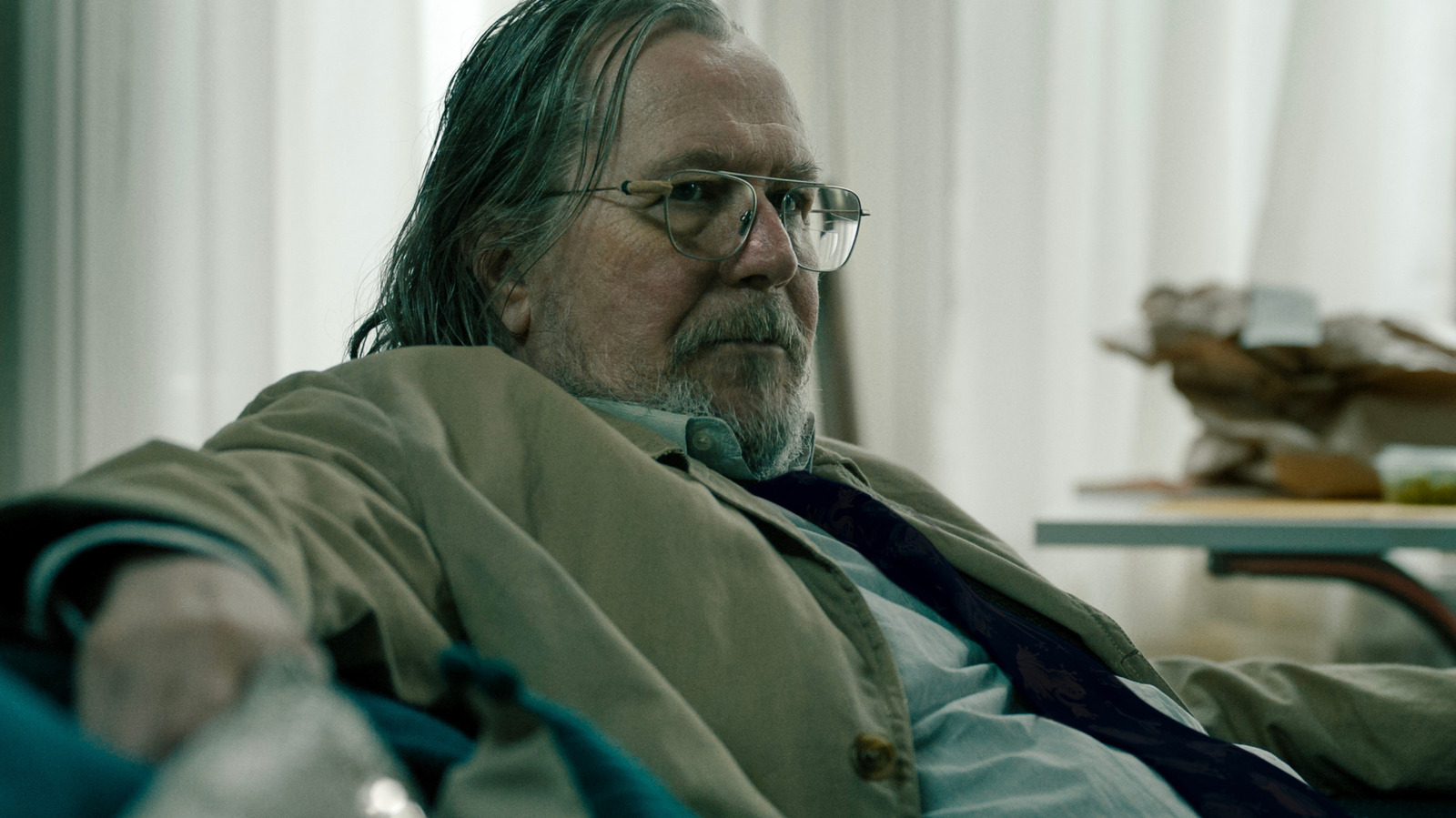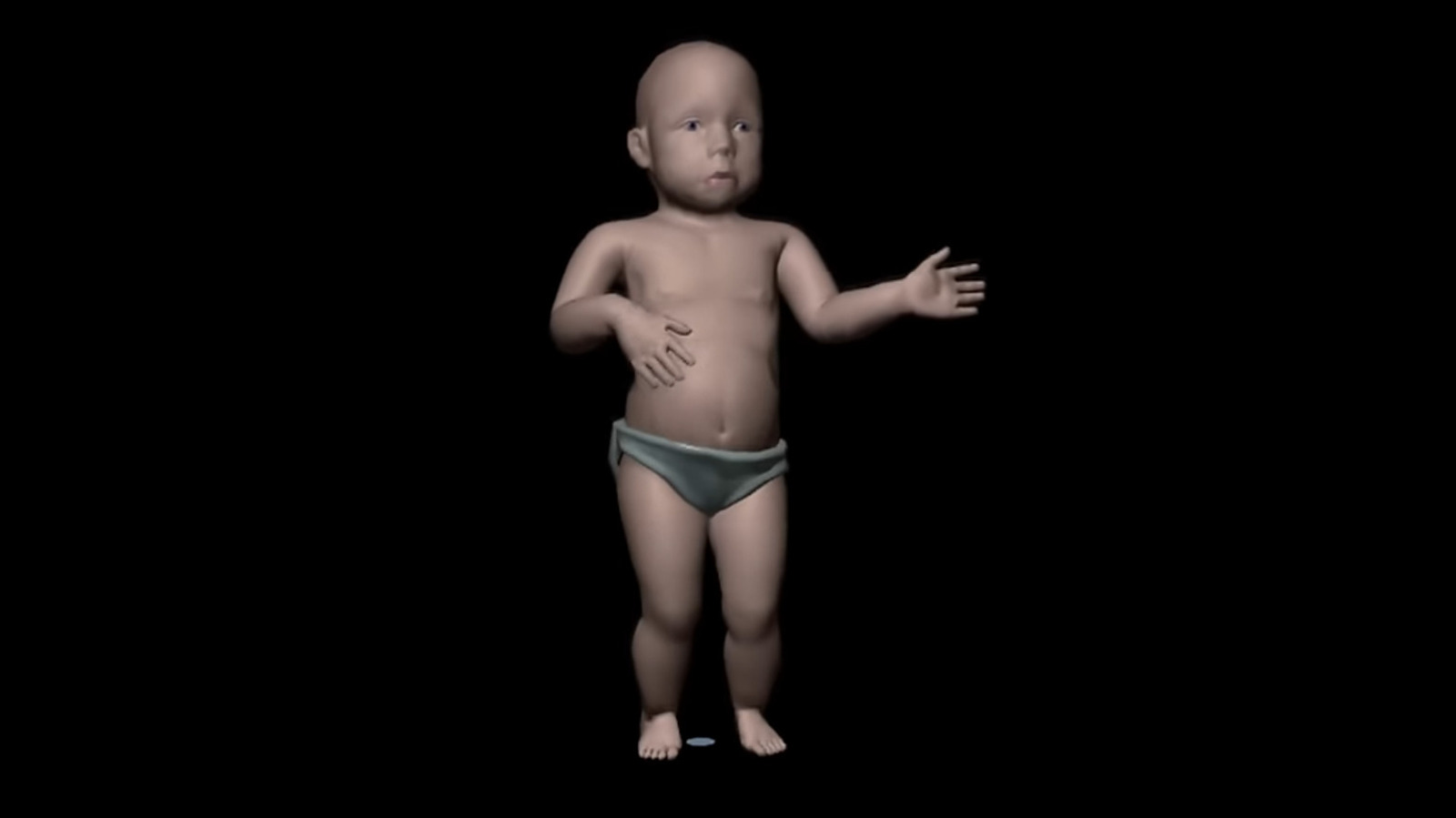You know Chef Aarón Sánchez from his many appearances on cooking shows, including Chopped, Chefs vs. City, and Next Iron Chef.
Chef Sánchez also acts as a co-host and judge on FOX’s MasterChef, which is in the midst of its 13th season. He’s an award-winning chef with a successful restaurant, Johnny Sánchez, in Louisiana and a philanthropist with the Aarón Sánchez Impact Fund, which uplifts Latino youth through food.
With MasterChef Season 13 in full swing, we hopped on Zoom to chat with Chef Sánchez to talk about what’s new this season and experience some of his joy in connection with food (his hands do the talking!). Mentoring sets MasterChef apart from its competitors.
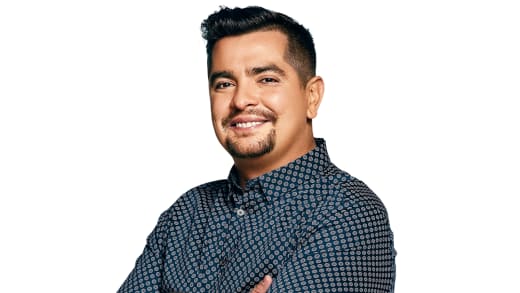
MasterChef remains unique in its field.
With 12 Seasons of MasterChef behind us, what makes it unique in a continually growing cooking competition field?

Well, the biggest difference is the mentoring part of it, actually. We’re with the majority of the contestants for over six weeks.
So regardless if they win, place whatever it is, they still are going to get mentoring. They’re going to have an opportunity to also get confidence in their culinary journey. And that’s why I find it very beautiful.
I’ve done Chopped, and I did that for many years, but that was something that was very brief. So we’re very invested in MasterChef to make sure that they succeed regardless of whether they get to the ultimate prize. So that’s what makes it really distinct.
Letting people down is the most challenging part of being a MasterChef judge.
And what’s the most challenging part of cutting down that huge swath of contestants to bestow those 20 aprons?
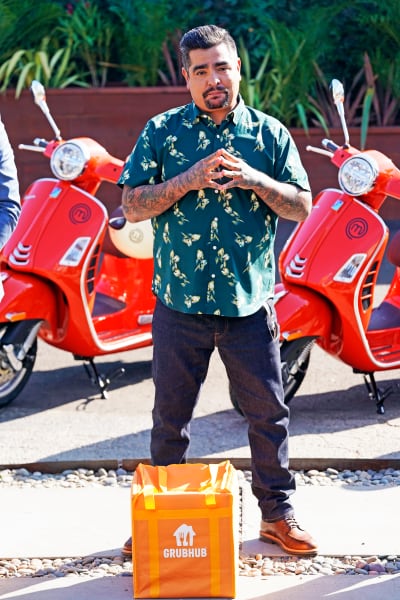
The biggest challenge is that everyone is worthy. They’ve gotten to this point, so everyone has come through a large process to get to that point.
So to let people down is very challenging. I’m like the sweetheart. I always want everyone to succeed and have an opportunity, but at the end of the line, we have to judge on that day.
So whatever you’re doing in that particular moment, you can have a bad day or a good day, but it’s going to reflect whether you get an apron or not.
Don’t expect awards for second place on MasterChef.
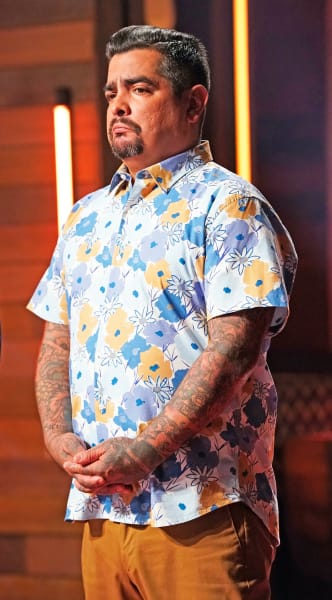
And it’s so funny how the three of you judge so differently, and it scares some contestants when they get up there. They just have that look on their face like they’re just waiting for something to happen. What’s it like to know that you have that kind of influence over somebody?
Well, for me personally, I think it’s always an opportunity to teach. The word chef means teacher at the end of the day. So if I can leave one of the contestants with some pearls of wisdom or just some technique, then I feel like I’ve done my job, and we’ve all been critiqued.
Being a chef is part of being critiqued. And I’ve been that person earlier on in my career and still to this day. And I think it’s very valuable. I think people can’t take it so seriously when people say that Gordon’s very abrasive or Joe is very harsh. It’s not like that.
It’s like what we want is the best; give us the best. We give too many awards for second and third place sometimes. And I’m sorry.
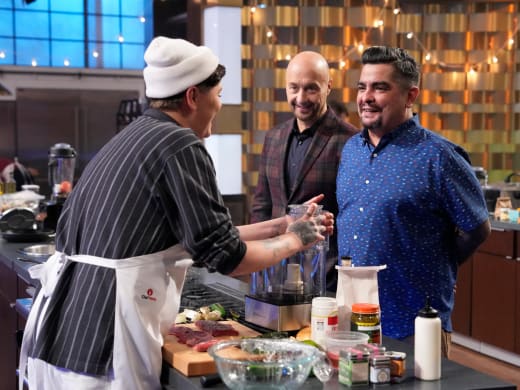
I couldn’t agree more. I couldn’t agree more.
We want excellence, so I’m sorry if somebody takes it the wrong way.
MasterChef Season 13’s approach capitalizes on memories and regional pride
This season brings home cooks from four distinct regions, and it’s fun watching them be passionate not only about their food but about their region. What’s the benefit of adding that regional element to the competition?
It’s a great question. Well, the idea is, don’t you think that your grandmother’s food’s the best? Don’t you think that local shop that you go to that you grew up with is the best?
Let them make fried chicken or a sandwich or meatloaf, whatever it is. When you have those food memories and that pride from where you come from, and then you bring that to a national, world at least, audience and stage, you’re going to go for it.

And I love when all of the contestants say, “You know what? This is the way I like it.” Because it challenges us as judges, too, to really be informed and really understand the nuances of what they’re talking about. And I think that in itself really speaks volumes.
Want to impress Chef Aarón Sánchez? Reinterpret a family dish.
It’s still early in the competition on this season of Masterchef, but have you run into any dishes so far that have challenged the way that you think about regional cooking?
No, look, to be honest, I’m very well-traveled. You know what I mean? Because of all the things I’ve done in my career. So nothing’s really come at me very differently.
I would say that I’ve been very impressed by the idea of reinterpreting a family dish like a meatloaf’s a meatloaf or a lobster roll’s a lobster roll.
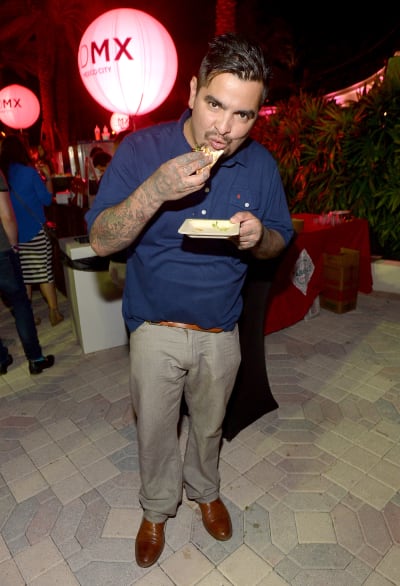
But the way that all the contestants have stayed true to their identity when it comes to their family pride and their regions, I think, is so beautiful. And it really is really inspiring to see.
Even being well-traveled, regional dishes still impress Chef Aarón Sánchez.
What’s the most exciting regional dish you’ve encountered in your travels?
So many. I’ve had proper lobster rolls in Maine, one of my favorites. I’ve had green chili in New Mexico, during the fall when they’re roasting green chiles at the Walmart right there in the parking lot and had just pork, just beautifully braised with the green chilies. I’ve had wonderful Chicago dogs, like the real deal there.
Yeah, so I just find it amazing because American regional cuisine started really in the early eighties at the same time as all the French nouvelle chefs coming from France and setting up shop, so it’s really interesting to see how New Orleans and Texas and New Mexico and California and the North and the Northwest has all these iconic chefs that really represent.
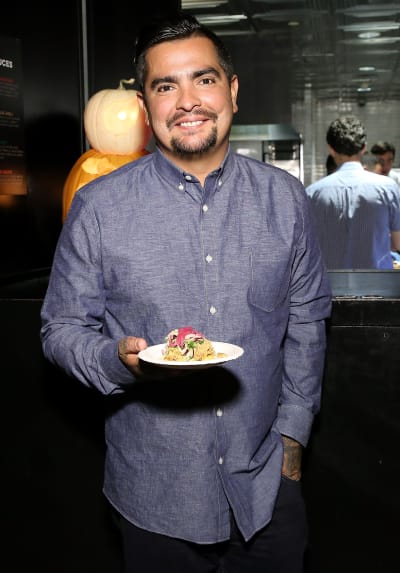
So it was really neat. I think we’re in a very cool time, and I hope through what I’m doing with the Aarón Sánchez Impact Fund and in our philanthropy to make sure that the young kids understand the regionality and this tree of chefs that have influenced so many others. I think it’s super important to remind them.
Chef Aarón Sánchez offers his take on a state fair-inspired dish.
The first competition on MasterChef Season 13 Episode 5 takes on elevated state fair-inspired food, which really gives people an idea of what those regions do that others don’t. If you were a contestant, what dish would you have pulled out of your hat for your state fair-inspired dish?
I would’ve done something completely different. I think the tendency is to do something, I don’t know, Mexican-inspired because of my background, but more so, I like to do classic dishes reinterpreted and make them contemporary.
So I would’ve done, I don’t know, a wonderful filet mignon because it has no fat. So I want to put fat into that.
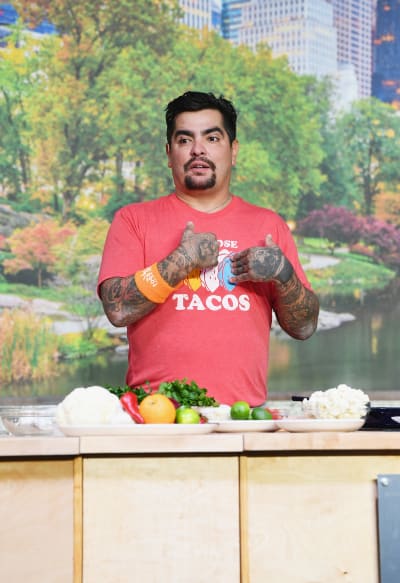
So maybe I might do a little blue cheese roasted poblano, caramelized onion filling, and stuff that there, and just roast it quickly, and then just sear it, so all that fat can go back into that filet mignon that doesn’t have any of that. So stuff like that.
That’s the thing with filet mignon; you have to add the flavor. There’s no fat, sadly. And you have to kiss it. I would say filet mignon is like a first date. You can’t go in hardcore, you know what I mean? Because you don’t want to sear it too aggressively, you have to be very gentle.
The regional theme of MasterChef Season 13 offers a very even playing field and brings personalities to the forefront.
How will the competitions stack up for the rest of the season? Will there be more of these regional-inspired challenges as well? Or will you stick to the standard ones? Will there be a time where anybody has a leg up over another group?
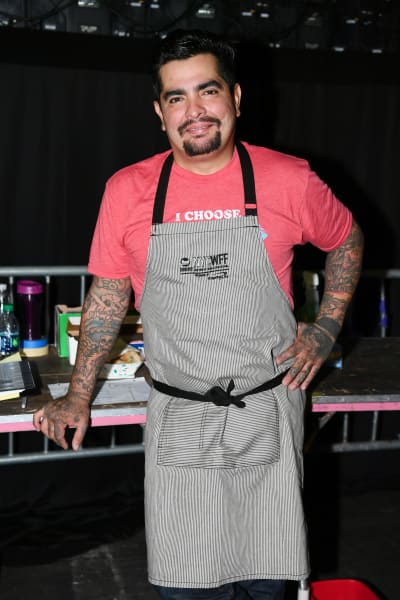
You know what? I think it’s been a very even playing field in this particular season. And I’ll tell you why, because I think everybody has been progressing in a way, as far as their skill level, throughout the whole competition.
I’ll tell you one thing that’s very interesting is when the contestants work in teams, and they’re in the south team first, and how much that pride comes into play, as far as their desire to win. You know what I mean?
Absolutely.
So that’s something you’ll see.
There’s something very special about not just your food but having that collective pride in your region as well. And it does change things up this season.

Yeah, and there’s all these perspectives of, is somebody from the Midwest a little bit more subdued and quiet? People from the northeast are louder. And you’d be surprised to see everyone’s personalities pop off, and I just love that.
The winner of the first challenge made lobster fries. And when you were all standing at the station talking to him, everybody had a real flat look on their face, like this could go either really bad or be one of the best things we’ve ever had.
How often do you have to hide what you’re thinking while you’re standing there, talking to people as they’re trying to cook?
Well, it’s always the idea of high risk, high reward. So when I see stuff like that, I get really excited because I’m like, “Wow, this is either…” Like you just said, it’s either going to suck or going to be ephemeral and amazing.
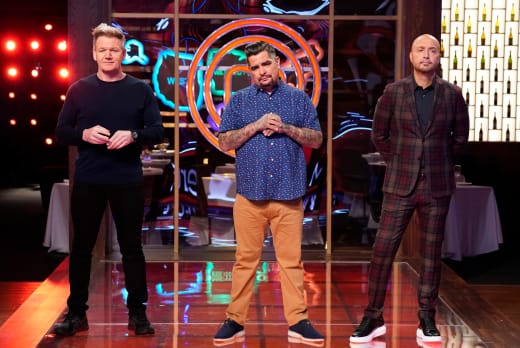
So I appreciate that because you have an opportunity to make a statement, and if you do it and you execute, go all in. So imagine these 20 contestants that garnered an apron have beat out thousands of people. So what’s holding you back? Go for it.
Right.
You know what I mean? And just swing for the fences.
And what I find beautiful about the competition is the fact that it gives the confidence for these people that come from other backgrounds that are lawyers and work in medical professions, and now the experience on MasterChef has allowed them to be able to have that confidence to go out on their own and do their own business, and really do it.
And I think that’s what’s special about it.
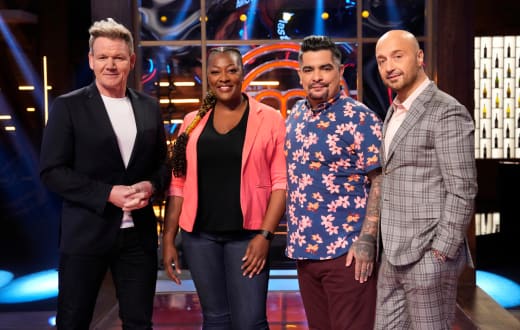
The most important element a home cook has to have to make it on MasterChef is…
What’s the most important element a home cook has to have to make it on MasterChef?
I think the home cook has to be courageous, have wonderful ideas, and be well-traveled. I think that’s very important. Go out there and seek out other influences from something that might not be familiar to you.
And the other big part is to come to L’Auberge in Lake Charles, Louisiana, and come eat in my restaurant called Johnny Sánchez. And when you come over here and see us, you’ll see a little bit of that adventurous cooking.
MasterChef airs on Wednesdays at 8/7c on FOX and the next on Hulu.
Edit Delete
Carissa Pavlica is the managing editor and a staff writer and critic for TV Fanatic. She’s a member of the Critic’s Choice Association, enjoys mentoring writers, conversing with cats, and passionately discussing the nuances of television and film with anyone who will listen. Follow her on Twitter and email her here at TV Fanatic.


.png)
